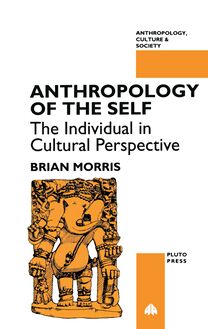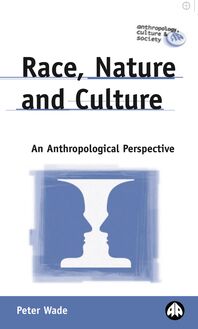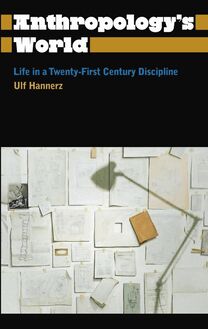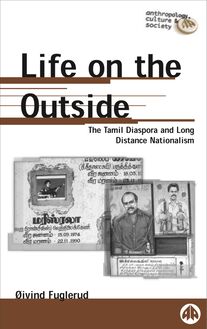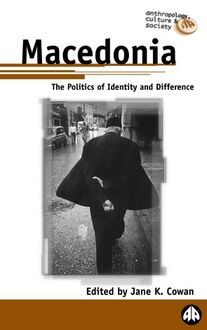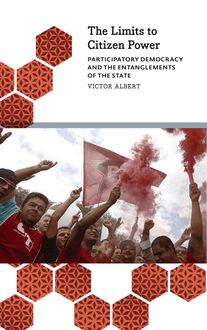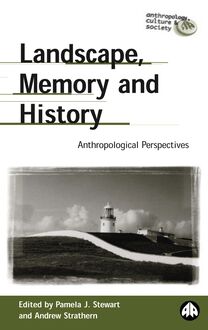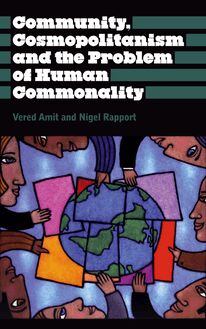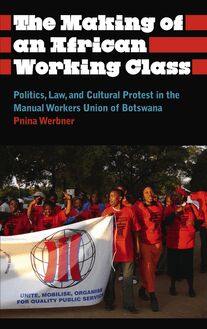-
 Univers
Univers
-
 Ebooks
Ebooks
-
 Livres audio
Livres audio
-
 Presse
Presse
-
 Podcasts
Podcasts
-
 BD
BD
-
 Documents
Documents
-
- Cours
- Révisions
- Ressources pédagogiques
- Sciences de l’éducation
- Manuels scolaires
- Langues
- Travaux de classe
- Annales de BEP
- Etudes supérieures
- Maternelle et primaire
- Fiches de lecture
- Orientation scolaire
- Méthodologie
- Corrigés de devoir
- Annales d’examens et concours
- Annales du bac
- Annales du brevet
- Rapports de stage
La lecture à portée de main
Vous pourrez modifier la taille du texte de cet ouvrage
Découvre YouScribe en t'inscrivant gratuitement
Je m'inscrisDécouvre YouScribe en t'inscrivant gratuitement
Je m'inscrisEn savoir plus
Vous pourrez modifier la taille du texte de cet ouvrage
En savoir plus

Description
In this bold intervention, Alexandra Hall shows that immigration detention centres offer a window onto society's broader attitudes towards immigrants. Despite periodic media scandals, remarkably little has been written about the everyday workings of this system, or about the people responsible for setting immigration policy. Detention, particularly, is a hidden side of border politics, despite its growing international importance as a tool of control and security.
This book also looks at the social life and the relationships between officers and immigrants to explore broad social trends, as well as resistance within the system, and provides rare insights into the treatment of the 'other'.
1. Introduction: Going Inside
2. Visual Practice and the Secure Regime
3. Being There: Social Life in the Centre
4. Compliance and Defiance: Contesting the Regime
5. Drawing the Line: Discretion and Power
6. Ethics and Encounters
7. Conclusion
References
Index
Sujets
Informations
| Publié par | Pluto Press |
| Date de parution | 06 juillet 2012 |
| Nombre de lectures | 0 |
| EAN13 | 9781849647175 |
| Langue | English |
Informations légales : prix de location à la page 0,1850€. Cette information est donnée uniquement à titre indicatif conformément à la législation en vigueur.
Extrait
Border Watch
Anthropology, Culture and Society
Series Editors: Professor Vered Amit, Concordia University and Dr Jon P. Mitchell, University of Sussex
Recent titles:
Claiming Individuality: The Cultural Politics of Distinction
EDITED BY VERED AMIT AND NOEL DYCK
Community, Cosmopolitanism and the Problem of Human Commonality
VERED AMIT AND NIGEL RAPPORT
Home Spaces, Street Styles: Contesting Power and Identity in a South African City
LESLIE J. BANK
In Foreign Fields: The Politics and Experiences of Transnational Sport Migration
THOMAS F. CARTER
On the Game: Women and Sex Work
SOPHIE DAY
Slave of Allah: Zacarias Moussaoui vs the USA
KATHERINE C. DONAHUE
A World of Insecurity: Anthropological Perspectives on Human Security
EDITED BY THOMAS ERIKSEN, ELLEN BAL AND OSCAR SALEMINK
A History of Anthropology
THOMAS HYLLAND ERIKSEN AND FINN SIVERT NIELSEN
Ethnicity and Nationalism: Anthropological Perspectives Third Edition
THOMAS HYLLAND ERIKSEN
Globalisation: Studies in Anthropology
EDITED BY THOMAS HYLLAND ERIKSEN
Small Places, Large Issues: An Introduction to Social and Cultural Anthropology Third Edition
THOMAS HYLLAND ERIKSEN
What Is Anthropology?
THOMAS HYLLAND ERIKSEN
Discordant Development: Global Capitalism and the Struggle for Connection in Bangladesh
KATY GARDNER
Anthropology, Development and the Post-Modern Challenge
KATY GARDNER AND DAVID LEWIS
Corruption: Anthropological Perspectives
EDITED BY DIETER HALLER AND CRIS SHORE
Anthropology’s World: Life in a Twenty-First Century Discipline
ULF HANNERZ
Humans and Other Animals: Cross-Cultural Perspectives on Human–Animal Interactions
SAMANTHA HURN
Culture and Well-Being: Anthropological Approaches to Freedom and Political Ethics
EDITED BY ALBERTO CORSÍN JIMÉNEZ
State Formation: Anthropological Perspectives
EDITED BY CHRISTIAN KROHN-HANSEN AND KNUT G. NUSTAD
Cultures of Fear: A Critical Reader
EDITED BY ULI LINKE AND DANIELLE TAANA SMITH
Fair Trade and a Global Commodity: Coffee in Costa Rica
PETER LUETCHFORD
The Will of the Many: How the Alterglobalisation Movement is Changing the Face of Democracy
MARIANNE MAECKELBERGH
The Aid Effect: Giving and Governing in International Development
EDITED BY DAVID MOSSE AND DAVID LEWIS
Cultivating Development: An Ethnography of Aid Policy and Practice
DAVID MOSSE
Terror and Violence: Imagination and the Unimaginable
EDITED BY ANDREW STRATHERN, PAMELA J. STEWART AND NEIL L. WHITEHEAD
Anthropology, Art and Cultural Production
MARUŠKA SVAŠEK
Race and Ethnicity in Latin America Second Edition
PETER WADE
Race and Sex in Latin America
PETER WADE
The Capability of Places: Methods for Modelling Community Response to Intrusion and Change
SANDRA WALLMAN
Anthropology at the Dawn of the Cold War: The Influence of Foundations, McCarthyism and the CIA
EDITED BY DUSTIN M. WAX
Learning Politics from Sivaram: The Life and Death of a Revolutionary Tamil Journalist in Sri Lanka
MARK P. WHITAKER
First published 2012 by Pluto Press 345 Archway Road, London N6 5AA
www.plutobooks.com
Distributed in the United States of America exclusively by Palgrave Macmillan, a division of St. Martin’s Press LLC, 175 Fifth Avenue, New York, NY 10010
Copyright © Alexandra Hall 2012
The right of Alexandra Hall to be identified as the author of this work has been asserted by her in accordance with the Copyright, Designs and Patents Act 1988.
British Library Cataloguing in Publication Data A catalogue record for this book is available from the British Library
ISBN 978 0 7453 2724 2 Hardback ISBN 978 0 7453 2723 5 Paperback ISBN 978 1 8496 4716 8 PDF eBook ISBN 978 1 8496 4718 2 Kindle eBook ISBN 978 1 8496 4717 5 EPUB eBook
Library of Congress Cataloging in Publication Data applied for
This book is printed on paper suitable for recycling and made from fully managed and sustained forest sources. Logging, pulping and manufacturing processes are expected to conform to the environmental standards of the country of origin.
10 9 8 7 6 5 4 3 2 1
Designed and produced for Pluto Press by Chase Publishing Services Ltd Typeset from disk by Stanford DTP Services, Northampton, England Simultaneously printed digitally by CPI Antony Rowe, Chippenham, UK and Edwards Bros in the United States of America
Contents
Series Preface
Acknowledgements
1 Introduction: Going Inside
2 Visual Practice and the Secure Regime
3 Being There: Social Life in the Centre
4 Compliance and Defiance: Contesting the Regime
5 Drawing the Line: Discretion and Power
6 Ethics and Encounters
7 Conclusion
Notes
References
Index
Series Preface
Anthropology is a discipline based upon in-depth ethnographic works that deal with wider theoretical issues in the context of particular, local conditions – to paraphrase an important volume from the series: large issues explored in small places. This series has a particular mission: to publish work that moves away from an old-style descriptive ethnography that is strongly area-studies oriented, and offer genuine theoretical arguments that are of interest to a much wider readership, but which are nevertheless located and grounded in solid ethnographic research. If anthropology is to argue itself a place in the contemporary intellectual world, then it must surely be through such research.
We start from the question: ‘What can this ethnographic material tell us about the bigger theoretical issues that concern the social sciences?’ rather than ‘What can these theoretical ideas tell us about the ethnographic context?’ Put this way round, such work becomes about large issues, set in a (relatively) small place, rather than detailed description of a small place for its own sake. As Clifford Geertz once said, ‘Anthropologists don’t study villages; they study in villages.’
By place, we mean not only geographical locale, but also other types of ‘place’ – within political, economic, religious or other social systems. We therefore publish work based on ethnography within political and religious movements, occupational or class groups, among youth, development agencies, and nationalist movements; but also work that is more thematically based – on kinship, landscape, the state, violence, corruption, the self. The series publishes four kinds of volume: ethnographic monographs; comparative texts; edited collections; and shorter, polemical essays.
We publish work from all traditions of anthropology, and all parts of the world, which combines theoretical debate with empirical evidence to demonstrate anthropology’s unique position in contemporary scholarship and the contemporary world.
Professor Vered Amit
Dr Jon P. Mitchell
Acknowledgements
First of all, my sincere thanks go to all the officers, staff and management at ‘Locksdon’ immigration removal centre.
The fieldwork and writing of this book were aided by the encouragement and support of many people along the way. I am extremely grateful to Lisette Josephides at Queen’s University Belfast for years of guidance, help and friendship. I would also like to thank Louise Amoore at Durham University, who has been a real inspiration and support. At Queen’s, thanks go to Paloma Gay y Blasco for her help during fieldwork, and Hastings Donnan. Thanks also to Thomas Hylland Eriksen and to Kay Milton. At Sheffield Sociology I would like to thank Jenny Hockey and Victoria Robinson. At Durham Geography particular thanks go to (past and present) members of Room 414. Thanks also to Marieke de Goede and Mara Wesseling at the University of Amsterdam. I am extremely grateful to Anne Beech and Will Viney at Pluto Press for their endless patience and support.
An extra special big thanks to Divya Tolia Kelly.
I would also like to thank my family: my father and stepmother for help during fieldwork and my mother for all her early encouragement.
Most of all, I would like to thank Mark Powell for his friendship, for his constant love and support, and for our life together. This book is dedicated to him, and to our daughter, Connie.
1
Introduction: Going Inside
Locksdon immigration removal centre accommodates men who have been detained under UK immigration law. The centre is a cluster of buildings set behind an imposing perimeter wall topped with razor wire. For Locksdon officers, staff and visitors, entry to the establishment is through a small door in the wall that leads into the gate area. For people who find themselves detained at Locksdon, entry is in the back of an escort contractor’s van, often at the end of a long and exhausting journey. Inside the centre walls, detainees getting out of the escort van, like staff coming through the gate to start their shift, find themselves in an open quadrangle, with an administration building to the left and the main centre straight ahead. Detainees will spend only a few moments in the fresh air, stretching their arms and legs, before being taken by the private security contractors into the reception area, where they will undergo a series of checks before being admitted to the establishment. Locksdon officers and staff, on the other hand, will use keys attached to a key pouch to pass through a series of time delay gates and doors to gain access to the main centre.
Once inside the centre, new detainees and staff members alike confront a long corridor with doors leading off to various offices and departments – the visits centre, the multifaith centre, dormitories, gymnasium, dining hall and kitchen, education department, health department and offices used by immigration officers. Depending on the time of day, the main corridor is either silent and deserted, or busy with detainees moving and talking in groups and staff bustling in and out of offices. The smell is always the same – disinfectant, bleach, institution. As an officer walks towards the centre office to discover his or her detail for the shift, he or she might encounter a ne
-
 Univers
Univers
-
 Ebooks
Ebooks
-
 Livres audio
Livres audio
-
 Presse
Presse
-
 Podcasts
Podcasts
-
 BD
BD
-
 Documents
Documents
-
Jeunesse
-
Littérature
-
Ressources professionnelles
-
Santé et bien-être
-
Savoirs
-
Education
-
Loisirs et hobbies
-
Art, musique et cinéma
-
Actualité et débat de société
-
Jeunesse
-
Littérature
-
Ressources professionnelles
-
Santé et bien-être
-
Savoirs
-
Education
-
Loisirs et hobbies
-
Art, musique et cinéma
-
Actualité et débat de société
-
Actualités
-
Lifestyle
-
Presse jeunesse
-
Presse professionnelle
-
Pratique
-
Presse sportive
-
Presse internationale
-
Culture & Médias
-
Action et Aventures
-
Science-fiction et Fantasy
-
Société
-
Jeunesse
-
Littérature
-
Ressources professionnelles
-
Santé et bien-être
-
Savoirs
-
Education
-
Loisirs et hobbies
-
Art, musique et cinéma
-
Actualité et débat de société
- Cours
- Révisions
- Ressources pédagogiques
- Sciences de l’éducation
- Manuels scolaires
- Langues
- Travaux de classe
- Annales de BEP
- Etudes supérieures
- Maternelle et primaire
- Fiches de lecture
- Orientation scolaire
- Méthodologie
- Corrigés de devoir
- Annales d’examens et concours
- Annales du bac
- Annales du brevet
- Rapports de stage

